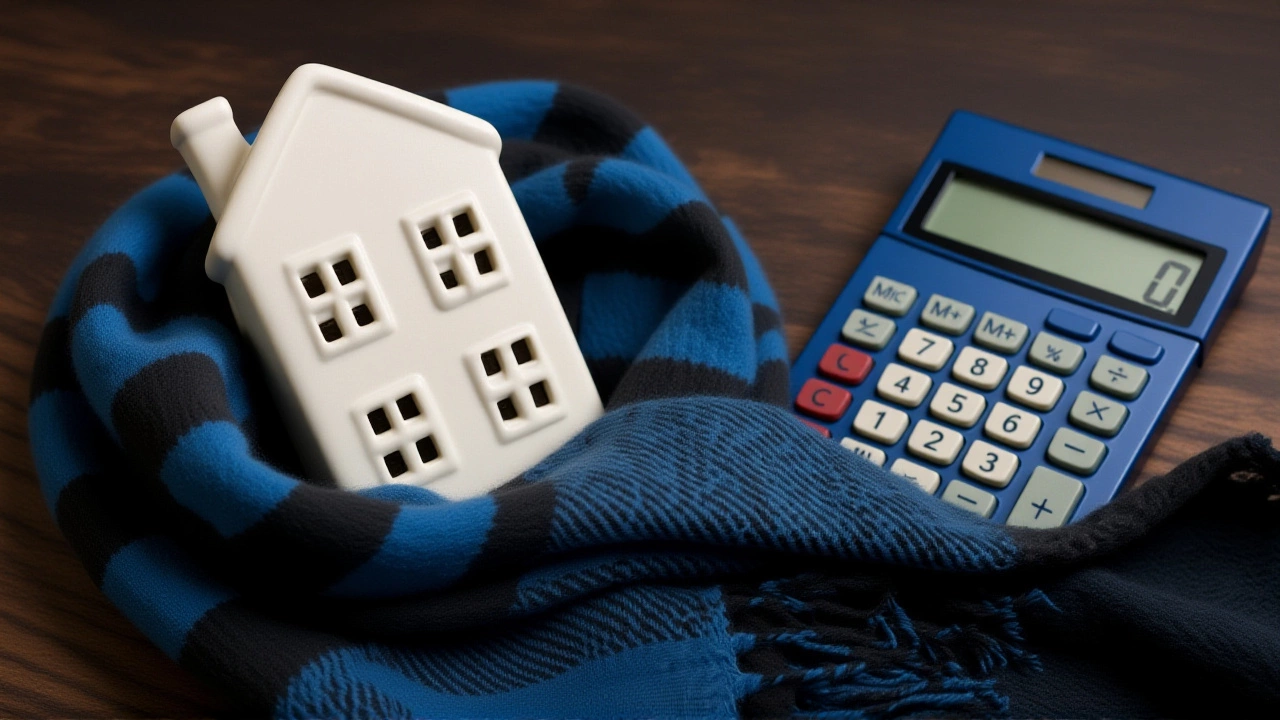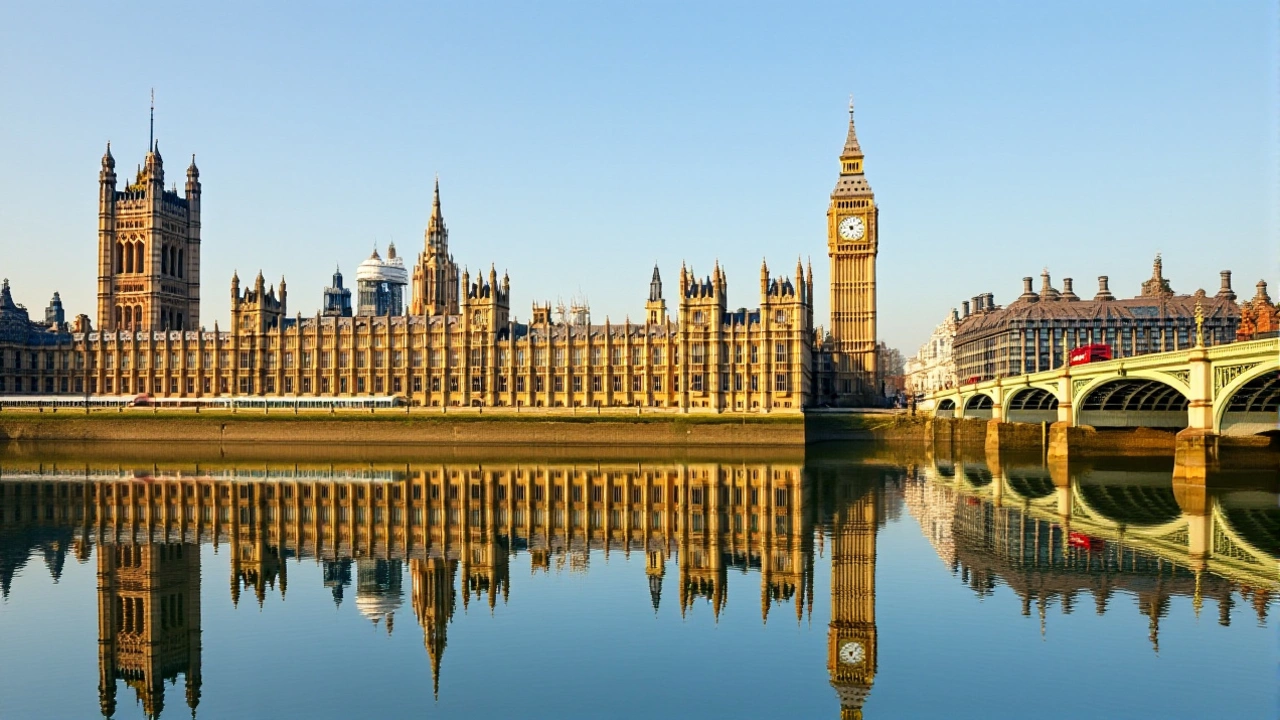When the House of Commons voted down a Conservative motion to abolish stamp duty on primary homes, it wasn’t just a procedural defeat — it was a stark reflection of how deeply divided Britain remains over housing, taxes, and public spending. The vote, held on Wednesday, October 28, 2025, at 12:46 pm UTC in the House of Commons in London, ended 329 to 103, with Labour MPs overwhelmingly opposing the plan and Liberal Democrats abstaining. The motion, pushed by Sir Mel Stride, Shadow Chancellor and chair of the Treasury Committee, aimed to remove the stamp duty land tax — a levy that, despite its name, hits hardest at middle-income buyers trying to move up the property ladder.
Why Stamp Duty Feels Like a Trap
Sir Mel Stride didn’t mince words. He called stamp duty "one of the worst taxes in our tax system," arguing it freezes people in place — not because they’re happy where they are, but because they can’t afford to move. He cited Office for Budget Responsibility (OBR) data showing a 1% hike in stamp duty leads to a 5–7% drop in transactions. That’s not just numbers; it’s families stuck in two-bedroom flats because moving to a three-bedroom home would cost them £15,000 in tax. Stride estimated that scrapping the tax would free up 2.8 million homes onto the market, boosting plumbers, estate agents, and builders — sectors that, he said, "don’t get enough credit for keeping Britain moving."
He wasn’t alone. Conservative MPs like Dame Harriett Baldwin and Sir Geoffrey Clifton-Brown echoed the sentiment, pointing to tax experts who say the system is broken. "You’re not just taxing a purchase," Clifton-Brown said. "You’re taxing someone’s chance to build a life."
The Government’s Counterargument: Cost, Not Clarity
The Treasury’s response was swift — and scathing. James Murray, chief secretary to the Treasury, dismissed the plan as "half-baked," comparing it to the chaotic Liz Truss mini-Budget of 2022. Then came Lucy Rigby, Economic Secretary to the Treasury, who called the proposal "fundamentally flawed." She reminded MPs that stamp duty raised £13.9 billion in 2024–25 — money that funds schools, hospitals, and police. Abolishing it, she said, would cost between £36 billion and £44 billion over five years. And for what? No plan to replace it.
"It’s the same horror show," Rigby said. "Scything through public services without a care for the consequences."

The Liberal Democrat Middle Ground
But the real intrigue came from Daisy Cooper, deputy leader of the Liberal Democrats. She agreed stamp duty was a "bad tax" — one that stifles mobility and rewards those who bought early. Yet she warned that scrapping it alone would be a disaster. "Remember 2020?" she asked. "The temporary holiday sent prices soaring. We got more transactions, yes — but also more inequality."
Instead, Cooper proposed a broader overhaul: scrap stamp duty and council tax together, and phase in a land value tax over a decade. That way, you tax wealth, not transactions. It’s a radical idea — but one backed by economists from the Institute for Fiscal Studies and the Resolution Foundation. The problem? It’s politically messy. No party wants to raise taxes on homeowners — even if it’s fairer in the long run.
What This Vote Really Means
Here’s the thing: nobody in Parliament thinks stamp duty is perfect. Even Labour admits it’s outdated. But the question isn’t whether it should change — it’s whether you can afford to change it. The Conservatives offered a vision: lower taxes, more movement, stronger local economies. Labour countered with a reality check: you can’t erase £40 billion in revenue without hurting public services.
And then there’s the housing crisis. The government claims it’s building 1.5 million new homes — but the data shows supply still lags behind demand by over 200,000 homes annually. Abolishing stamp duty might nudge people to move, but it won’t build a single brick. Without serious investment in housing supply, any tax change is just rearranging deck chairs on the Titanic.

What’s Next? The November Budget
The real action starts on Wednesday, November 26, 2025, when Chancellor Rachel Reeves delivers her first full Budget. Treasury sources say property tax reform is still under active review — but they’re not talking about abolition. Instead, insiders suggest a tiered system: lower rates for first-time buyers, higher ones for luxury homes, and possibly a small annual property charge to replace council tax. The goal? Make the system fairer, not just cheaper.
For now, the Conservatives are left with their numbers: 103 votes. Labour holds 329. And millions of renters? They’re still waiting.
Frequently Asked Questions
How much does stamp duty actually cost homebuyers?
Stamp duty rates start at 2% on properties over £250,000, rising to 12% for purchases over £1.5 million. For a typical UK home priced at £290,000, the tax is £5,800 — nearly the size of a 10% deposit. First-time buyers pay nothing on the first £425,000, but anyone moving up the ladder faces steep bills — often forcing them to stay put, even for jobs or family reasons.
Why did Labour vote against scrapping stamp duty?
Labour argues that abolishing stamp duty would cost £36–44 billion over five years — money that currently funds the NHS, schools, and social care. Without a clear replacement revenue source, they see it as a reckless giveaway to existing homeowners, not a solution for renters or young buyers. The party prefers targeted reforms, like expanding Help to Buy or funding social housing.
Could a land value tax replace stamp duty?
Yes — and experts like the IFS say it’s the most equitable option. A land value tax would charge owners based on the unimproved value of their land, not the building. It encourages development, penalizes underused plots, and avoids punishing people for moving. But it’s politically toxic: voters hate new taxes, even fair ones. Phasing it in over 10 years, as Daisy Cooper suggests, is the only realistic path.
What happened after the 2020 stamp duty holiday?
When the government temporarily scrapped stamp duty in 2020, property transactions jumped 40% — but prices surged even faster. The average home rose by £35,000 in 18 months, pricing out first-time buyers. The policy helped sellers and investors, but widened the wealth gap. Many economists now call it a cautionary tale: tax cuts without supply-side reforms inflate bubbles, not opportunity.
Will stamp duty be reformed in the November Budget?
Yes — but not abolished. Treasury insiders say Chancellor Rachel Reeves is considering a progressive reform: lowering rates for mid-tier homes (£250k–£500k), raising them for luxury properties (£1.5M+), and possibly introducing a small annual land charge. The goal is fairness, not savings. The Conservatives’ all-or-nothing approach lost — but incremental change still has a chance.
Who benefits most from stamp duty abolition?
Existing homeowners — particularly those in the South East, where property values are highest — would gain the most. A £750,000 home buyer saves £40,000 in tax. But renters, young people, and those in low-income areas see little direct benefit. Without housing supply increases, abolition mainly rewards those already on the ladder, not those trying to climb it.
